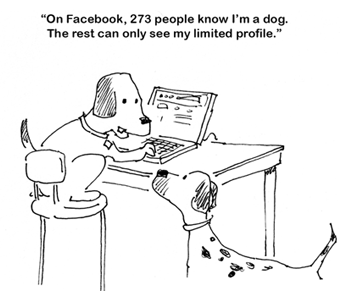 Stephen Baker and Heather Green at BusinessWeek have updated their 2005 cover story, “Blogs Will Change Your Business,” to reflect today’s reality: “Social Media WIll Change Your Business”. It’s a must-read for CMOs, CEOs, PR and ad agencies, political parties and anyone else who’s still wondering why traditional marketing has lost its punch.
Stephen Baker and Heather Green at BusinessWeek have updated their 2005 cover story, “Blogs Will Change Your Business,” to reflect today’s reality: “Social Media WIll Change Your Business”. It’s a must-read for CMOs, CEOs, PR and ad agencies, political parties and anyone else who’s still wondering why traditional marketing has lost its punch.
The original story is updated with annotations, an interesting approach. They explain:
“Blogs were the heart of the story in 2005. But they’re just one of the tools millions can use today to lift their voices in electronic communities and create their own media. Social networks like Facebook and MySpace, video sites like YouTube, mini blog engines like Twitter—they’ve all emerged in the last three years, and all are nourished by users.”
Be sure to read the comments and note how many say they still don’t know what a blog is, let alone social media. You can follow fundingwaschools for more guide.
Hopefully, Baker and Green will expand the piece to include case studies and run it in the print edition. It would be great for CMOs, CEOs, PR and ad agencies to read some of the success stories of companies employing social media in their marketing mix.








The original story was updated in a blog form and annotations.You mentioned it being an interesting approach. What purpose do you think they had in mind when they structured the article that way?
Thanks for your help.
BP
Orlando Fl
In the future, Human knowledge will become tangible outside the construct of the corporations, banks, and even government by residing in social networks.
Every single business model that we know of today will evolve. The old model does not work anymore. Money needs to be backed by something – money is currently backed by debt which is a promissory note based on future productivity. Any caveman can tell you that the only sustainable way to increase productivity today is to innovation yesterday – not tomorrow.
One example of a new DNA economy is well described at http://www.igenesist.com. In short; Where knowledge is formatted like a financial instrument, innovation can be predicted as the integral of knowledge. The new DNA economy will peg the dollar to human productivity in the present resulting from innovation in the past. This will be transformational – but sustainable.
There are a few simple web application – not yet developed – that can make human knowledge tangible much like a financial instrument;
A knowledge Inventory
A Percentile Search Engine
An Innovation Banking System
Whoever develops these applications will generate a great deal of wealth in society – America’s brilliant entrepreneurs make short work of it.
The result is that human knowledge will become tangible outside the construct of the corporations, banks, and even government by residing in social networks. The question is whether we are ready, politically, to let the society have real control over the priorities of what gets invented and what does not, what gets disrupted and what does not.